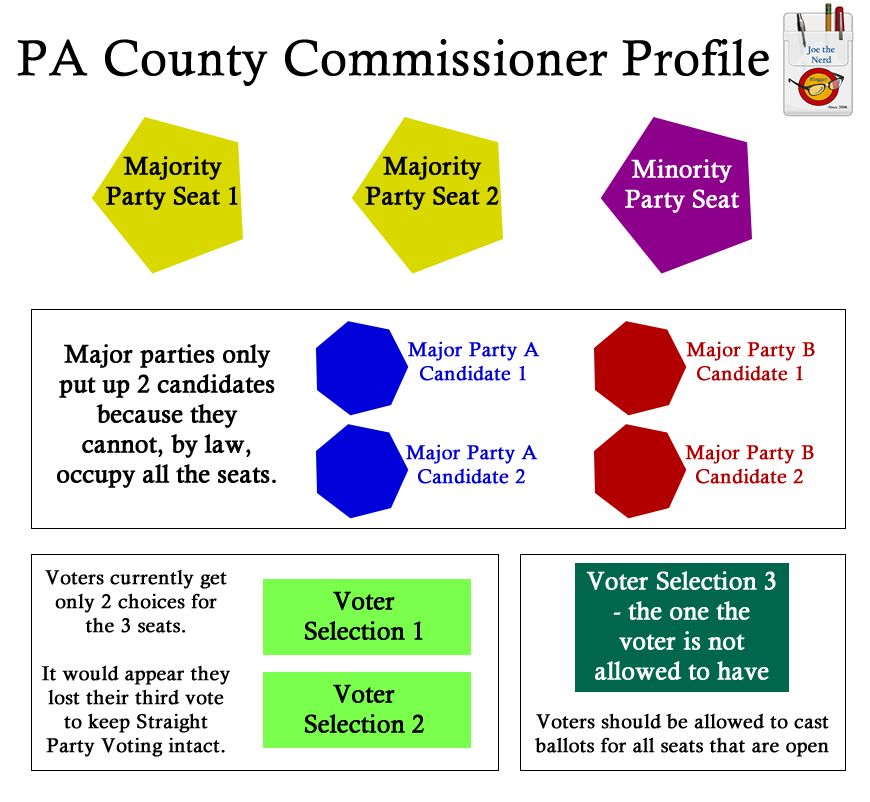Pennsylvania Voters Short-Changed By County Commissioner Voting System

The rallying cry in the 1770’s was “Taxation Without Representation”. They fought a war over it and THEY won. But we are still losing.
In Pennsylvania, many counties have a bizarre system to guarantee representation of a minority party. The counties have 3 commissioners and have written the laws to stipulate all 3 cannot be from the same political party. On the face of it that is fine and good.
However, in practice, this needs some tuning. The reality is voters can only vote for 2 commissioners.
Even though there are 3 slots open, you can only vote for 2 people!
Since a party can only capture 2 of the 3 slots, the major parties only put up 2 candidates for the 3 slots. The campaign becomes - ‘Vote for our team of two people to become the majority’. If a major party put up 3 candidates you would have one of the candidates as an odd person out, siphoning votes from the other 2 major party candidates on the ticket. Or worse, a team of 2 insiders would be working against their teammate even before facing the other party’s team. As a party, it is just smarter to put 2 people up and not have a fight you do not need.
The issue is - somewhere along the way the general public lost the ability to vote for all 3 slots. Maybe hyper-partisanship took over to say:
If we can’t run three people, why would we allow the public to vote for three people? If the public were to use that other vote they would start to look at the other party as a viable place to send that vote. We would be allowing the other party into the system.
The general election becomes a game of musical chairs where 4 candidates vie for 3 slots. This is where one of the parties perceives that they are in a weaker position and one of the candidates from the ‘weaker’ party begins to ‘cut’ their running mate by making a deal with the ‘stronger’ party.
It becomes a mess.
A solution to hyper-partisanship in this case may be to allow voters to cast a ballot for each open seat.
Keep the parties sending up two people for their tickets, but allow voters to make a selection for EACH seat open. That third vote floating out there could go to the other major party candidate or to an alternate party candidate. Alternatively, the voter could bullet vote their party’s slate (only cast 2 of their three ballots).
The choice of the voter would be made by the person casting it – and not restricted by a warping of party politics.




